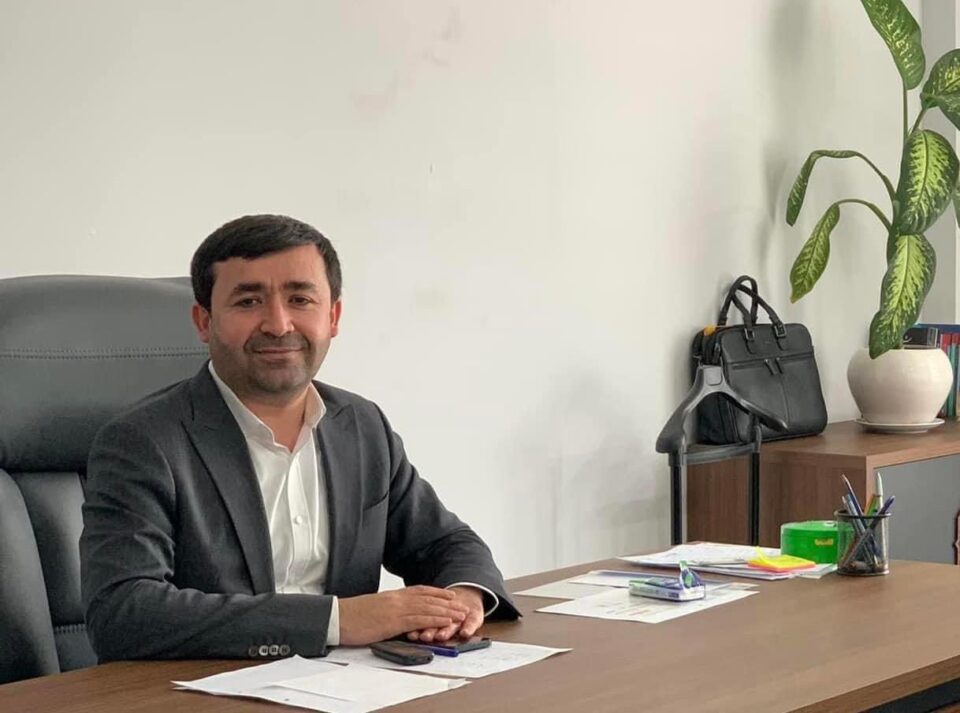Kurdistan’s strategic neutrality protects stability, as leaders emphasize unity and wise governance amidst complex regional conflicts and pressures
An expert, Dr. Erfan Aziz, in national security discusses Kurdistan’s strategy in the region, emphasizing the importance of safeguarding Kurdistan’s regional balance and avoiding involvement in the ongoing regional conflicts.
Kurdish Globe: How do you view Kurdistan’s strategy in the region, and what do you think Kurdistan should do for its future?
Dr. Erfan Aziz: The Kurdistan Region, under the policy and strategic direction set by President Barzani, has so far successfully maintained a careful balance to avoid being drawn into the conflicts surrounding it. Significantly, the KDP’s victory in the last parliamentary election reinforces the strong foundation of Kurdistan’s autonomy. The previous cabinet was notably effective in serving the people of Kurdistan while resisting external pressures to drag the region into conflict. Through President Barzani’s wisdom and resilience, these attempts were thwarted. Currently, President Barzani is advocating for a unified government and a consolidated armed force throughout Kurdistan, suggesting that the KDP, as the winning party, should take steps to address and resolve issues left by the previous cabinet.
Kurdish Globe: What needs to be done at this stage for Kurdistan, and on what basis should the next cabinet be formed?
Dr. Erfan Aziz: The regional situation is increasingly tense and complex; if the current conflict persists, peace in the region will not last unless managed wisely. Thus, it is imperative to swiftly establish the tenth cabinet of the Kurdistan Regional Government without delay. The international community should act quickly in this regard. A unified Kurdish government is essential, one that consolidates all Peshmerga forces and administrative efforts across Kurdistan from Zakho to Khanaqin, while removing party-driven barriers to effective governance. If the United States and Iraq want sustained peace in the region, they must take tangible steps to ensure Kurdistan is not manipulated into becoming a tool of war or entangled in vague agendas. The Iraqi government should cooperate and coordinate with the Kurdistan Region, actively working with the High Security Committee to prevent the spillover of regional conflicts into Kurdistan, especially regarding PKK activities that could lead to conflict on Kurdish soil without the Kurdistan Regional Government’s consent.
Kurdish Globe: How does the international community view the next phase for the Kurdistan Region, and what are their hopes for a strong Kurdistan?
Dr. Erfan Aziz: Following the recent Kurdistan parliamentary elections, three major world powers – the United States, the United Kingdom, and France – issued statements urging that parliament swiftly commence its sessions and form the new cabinet. It is noticeable that the international community is now more focused than ever on the formation of this government, given the instability in the region, particularly as Lebanon’s unrest could easily spread. America’s message underscores the importance of political forces respecting democratic and civil principles. This suggests that they expect the government formation process to move beyond mere election slogans and campaign mentalities. The international community will likely not tolerate any political force undermining or destabilizing the government and expects Kurdistan to address its internal challenges proactively.
Kurdish Globe: How can a better understanding be reached with the Iraqi government, and what steps has the Kurdistan Region taken in this direction?
Dr. Erfan Aziz: From the beginning of the ninth cabinet, one of the primary goals has been to resolve issues with Baghdad. Significant sacrifices have been made in this pursuit – Kurdistan halted its oil exports and handed over internal revenues to Baghdad, accepting a range of terms. On Iraq’s side, Prime Minister Sudani has taken positive steps toward finding solutions, leading to a good understanding between both Kurdistan’s and Iraq’s Prime Minister. In the tenth cabinet, this cooperation should persist, with efforts focusing on resolving issues surrounding salaries and oil revenue, particularly by advocating for the swift passage of Iraq’s oil and gas law, which could bring resolution to many oil-related issues. On the matter of salaries and the budget, there is mutual understanding, though Baghdad must provide greater assurances to Kurdistan, showing intent to resolve these issues permanently. Special committees are meeting to address these concerns, yet challenges remain. Regarding the Peshmerga, certain aspects must be internally resolved within Kurdistan, ensuring Peshmerga’s unification. Other aspects, however, depend on Baghdad, as Iraq has yet to address the Peshmerga’s budget and equipment needs fully. Additionally, certain chauvinistic leaders are displeased that arms have been restored to the Peshmerga – a sentiment that must be addressed to achieve genuine security and stability along the borders of the Kurdistan Region.
Kurdish Globe: What are the internal obstacles that need to be removed to improve the political environment?
Dr. Erfan Aziz: A critical issue has emerged since 2009 with the rise of so-called opposition: the increased use of offensive language and harsh rhetoric by some individuals. Previously, such behavior was limited to certain individuals, but now it includes party leaders and high-ranking officials, who resort to disrespectful language and mockery, further polluting Kurdistan’s political environment. It is essential to uphold the rule of law and curb this behavior to prevent the escalation of violence, which has already shown early signs.
This culture of insults has not only degraded public discourse but has also fostered resentment and division among people. The KDP, guided by President Barzani’s vision, must work to eliminate this toxic atmosphere, removing a key tool from those who seek to disillusion the Kurdish population. Additionally, there is an urgent need to address the unhealthy political environment that has taken root. This situation, if left unaddressed, poses a severe risk to societal stability. President Barzani’s cautionary messages reflect a genuine concern that society could once again fragment if unity and decorum are not restored.
The Kurdish Globe

